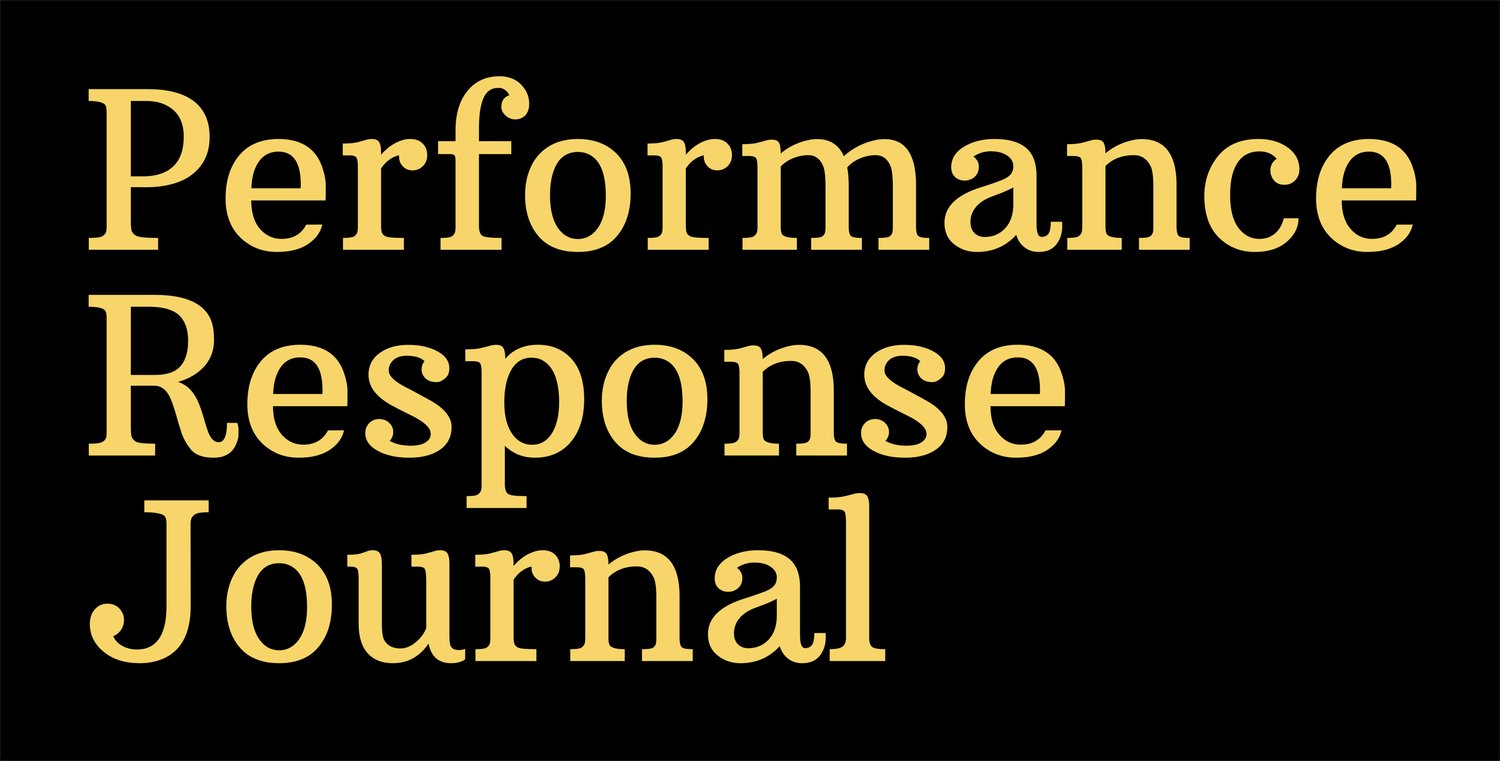Discerning the Current: A response by Benji Hart
Embedded writer Benji Hart reflects in poem form on a rehearsal of Contra la Corriente, an in-progress performance by Ivelisse Diaz, at Segundo Ruiz Belvis Cultural Center.
Ivelisse Diaz image by Charlie Billups
She kicks off her Nike slides and stands center stage.
[Behind her, four crossed tapestries the colors of the flag of Lares,
exposed brick.] She walks slowly stage right.
[Eventually, there will be other dancers offstage
holding telas stretched across her chest and torso.]
The voices of her mayores accompany her. [This may be
via voiceover, or her grandmother may actually join her on stage
in a rocking chair.]
She steps into a shock of colored light. [Orange?]
The drummer begins. [Holandés, but played with heavy hits
rather than the usual lighter licks.]
Phantom hands pull her from behind, encumbering her motions,
but also contributing to their execution.
[Here, the call and response is not just between dancer and drummer,
but between a Boricua and the literal forces working against her.]
Her palms slap a second rhythm on her thighs. She stumbles,
turns, [“Sigue, mija”] walks slowly stage left.
[“Camina, camina”]
Stepping into a second lightbeam, [Purple?] the drummer
rejoins her immediately. [Cuembé this time, rigid, almost militant.]
The body is off-center, but also rooted.
[“No tenga miedo”]
The phantom hands respond to resistance. [“Pero relájate, mija”]
She is expert at aestheticizing
that which might otherwise make movement impossible.
[Her daughter and even her niece may step in and take solos
at some point in the piece.]
Here, the gestures are frenetic. Her hands bat at the air.
[Her chest heaves.]
A new set of unseen hands
snatches the barríl away from the drummer.
Suddenly, she is dancing unaccompanied.
[“Nena, sigue luchando”]
Her heels beat out a pulse. [The drum is a phantom.]
Hopping, pounding, the piquetes become instrumentation.
[Patria or diaspora?]
Perhaps the hands are those of ancestors,
[“There are babies being born right now”] and not
the oppressive forces we first thought them to be.
[“No one said this decolonization stuff
was going to be easy”] She walks up to the very lip of the stage.
[The drum is the oldest living ancestor.]
She pivots, spreads her arms,
twice to each side. [Abuela is a phantom.]
Her acrylics clack and jangle. Her hands release. [“This
is the pressure that we’ve been waiting on”]
She cringes with the effort. [The drum is an overturned chalice.]
She reaches outward, [“Una gente de conciencia...”]
steps slowly back, returning to center stage.
[“If you don't love bomba
then fear it”] She grins.


